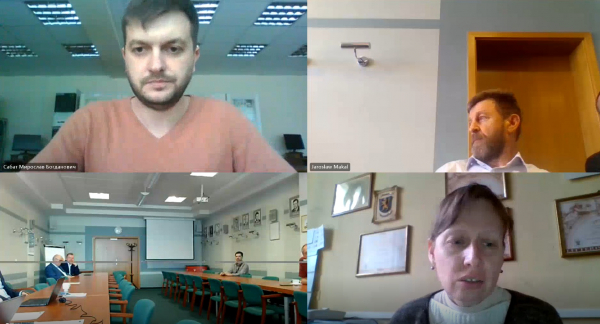The series of online lectures organised within the framework of the educational project Connect, Compare and Repair for a Common Future with Ukraine: a focus on Electrical Engineering teaching (CONN’COR) has been completed. The project is being implemented with the participation of four partner universities – Bialystok University of Technology (Poland), CentraleSupelec University (France), University of Nis (Serbia), and Lviv Polytechnic National University – and aims to strengthen academic dialogue, exchange of experience and support for Ukraine in difficult circumstances.
The coordinator of the Ukrainian part of the project is Iryna Moroz, Associate Professor at the Department of General Physics, the Institute of Applied Mathematics and Fundamental Sciences, who ensures communication between partners on the implementation of international academic initiatives.
The series of lectures on Resilience and Protection of Electricity Systems in Wartime: Challenges and Solutions is dedicated to analysing critical issues and strategic approaches to maintaining the stability of Ukraine’s electricity systems in the face of military threats.
The speakers were:
- Oksana Hoholiuk, Doctor of Technical Sciences, Head of the Department of Theoretical and General Electrical Engineering,
- Myroslav Sabat, Candidate of Technical Sciences, Associate Professor at the Department of Electric Power Engineering and Control Systems.
The lectures focus on the key problems of the functioning of Ukraine’s electricity infrastructure in the context of armed aggression and technological solutions aimed at improving its reliability and resilience.
Topics covered include:
- Restoration strategies: modern methods of repairing and reinforcing damaged power grids;
- Development of resilient power grids: engineering solutions for building self-healing systems;
- Infrastructure strengthening: using the latest materials and technologies to enhance grid resilience;
- Mobile and distributed generation: introduction of modular energy sources and mobile gas turbines;
- Microgrids and renewable sources: their role in ensuring energy security at the regional level
- Energy storage systems as a tool to stabilise electricity supply;
- Hydrogen energy and SMRs (small modular reactors): prospects for the introduction of new energy sources;
- Cybersecurity: protecting power systems from cyber threats in the current environment.
The lecturers presented the latest approaches to the design of protected networks, strategies for restoring damaged lines, the introduction of mobile and distributed generation, the use of hydrogen energy, small modular reactors (SMRs) and energy storage systems, as well as key solutions in the field of cybersecurity of energy systems.
The event brought together students and professors from several countries in a common academic space to share knowledge, experience and vision of the future of energy in the face of global challenges.

